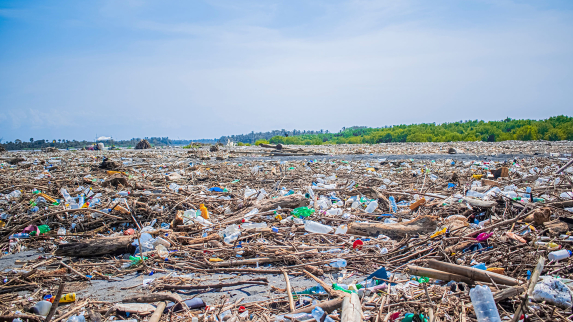Micro- and nanoscale plastic particles in soil and water can significantly increase how much toxic chemicals plants and human intestinal cells absorb, according to two new studies from Rutgers Health that raise fresh concerns about food safety from plastic pollution. The first study in NanoImpact found that lettuce exposed to both nanoscale plastic particles and common environmental pollutants such as arsenic took up substantially more of the toxic substances than plants exposed to the pollutants, alone confirming the risks of polycontamination of our food chain. A companion study in Microplastics journal showed similar effects in human intestinal tissue.
The combination of both studies suggests micro and nano plastics, the byproduct of fragmentation of plastics in the environment over time, could be creating a dangerous cycle of contamination: making plants absorb more toxic chemicals that we might then eat, while making our bodies more likely to also absorb both those toxins and the plastics themselves and increasing risks for diseases, especially for susceptible populations.
“We’ve already put about 7 billion metric tons of plastics into the environment that keep breaking apart,” said Philip Demokritou, director of the Nanoscience and Advanced Materials Center at Environmental Occupational HealthSciences Institute at Rutgers University and senior author of both studies. “They pollute everything around us – the water we drink, the food we eat, the air we breathe.” To read the full story.

